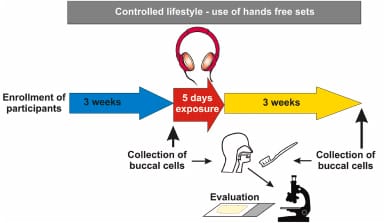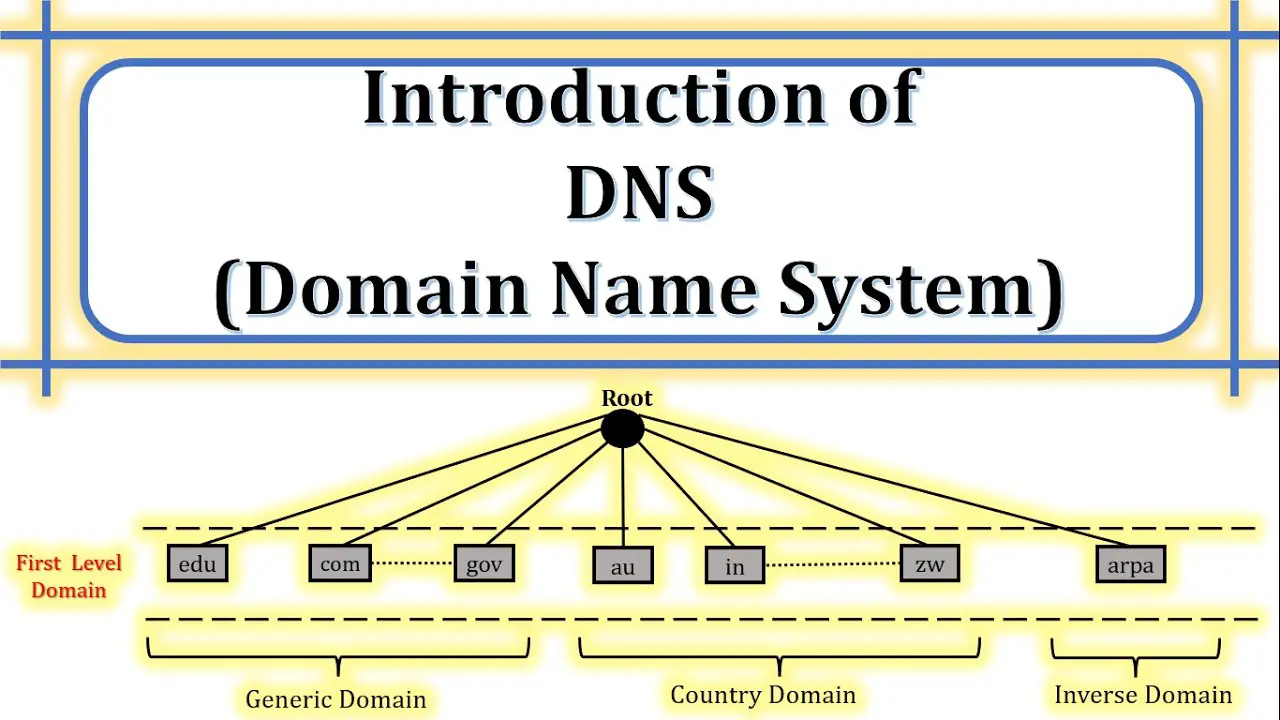Elon Musk has been a vocal advocate for responsible and ethical development of artificial intelligence (AI). He has expressed various opinions and concerns about AI over the years.
Elon Musk believes that artificial intelligence has the potential to be both a great benefit and a significant risk to humanity. He has repeatedly warned about the potential dangers of AI, particularly if it were to become superintelligent without proper control mechanisms in place. Musk has used the term “existential risk” to describe his concerns about AI, suggesting that it could pose a fundamental threat to the survival of humanity if not managed carefully.
Musk has stated that AI development should be regulated and that there should be proactive oversight to ensure that AI systems are developed and used in a safe and responsible manner. He has advocated for government agencies to be involved in setting guidelines and regulations for AI, comparing AI to industries like aviation and automotive, which are subject to strict safety regulations.
Furthermore, Musk has played a pivotal role in founding and supporting organizations dedicated to AI safety. He co-founded OpenAI, an organization focused on researching and developing AI in a way that benefits humanity while minimizing risks. OpenAI is committed to promoting the responsible use of AI and sharing AI safety research with the broader scientific community.
Musk has also been vocal about the potential dangers of superintelligent AI. He has raised concerns about AI systems surpassing human intelligence, suggesting that such a scenario could lead to unpredictable outcomes and even a loss of control over AI systems. To address this, he has proposed the idea of merging AI with the human brain through technologies like Neuralink to ensure that humans remain relevant in an AI-dominated future.
In summary, Elon Musk’s stance on AI centers on the need for regulation, safety, and responsible development. He has highlighted the potential risks of AI, especially in the context of superintelligent systems, and has actively worked to establish organizations and initiatives that aim to guide AI development in a direction that benefits humanity while minimizing potential harm.
Elon Musk, the visionary entrepreneur, and founder of several groundbreaking companies like Tesla, SpaceX, Neuralink, and The Boring Company, has been a vocal advocate for both the promise and peril of artificial intelligence (AI). Musk’s views on AI are as fascinating as they are polarizing, and his statements on the subject have sparked numerous debates within the tech community and beyond. In this article, we will explore Elon Musk’s latest statements and opinions on AI and its implications.
Musk’s Relationship with AI
Elon Musk’s fascination with AI can be traced back to the early days of his career. He co-founded Zip2, one of his first ventures, which provided business directories for newspapers, and then went on to establish PayPal, which revolutionized online payments. These early experiences with technology and the internet laid the foundation for his continued interest in AI. Throughout his career, Musk has demonstrated a deep commitment to pushing the boundaries of technology and exploring the potential of AI.
The Tesla Connection
Perhaps the most prominent connection between Elon Musk and AI is Tesla, the electric vehicle (EV) and clean energy company that he co-founded. Tesla is at the forefront of the automotive industry’s shift toward autonomous driving, and Musk’s vision for the future of transportation is closely intertwined with AI. The company’s Autopilot system, which utilizes AI and machine learning, has led to significant advancements in self-driving technology.
In a recent interview, Musk reiterated his vision for Tesla’s Autopilot, emphasizing its potential to make driving safer and more convenient. He stated that AI-powered self-driving systems would reduce traffic accidents, save lives, and make transportation more efficient. However, he also acknowledged the challenges that come with developing AI for autonomous vehicles, particularly the need for rigorous safety standards and extensive testing.
SpaceX and AI
Musk’s ambitions extend far beyond Earth, and his aerospace company, SpaceX, is another arena where AI plays a crucial role. SpaceX aims to make space exploration more accessible and ultimately enable human colonization of Mars. AI is integral to the success of SpaceX missions, from spacecraft navigation to the management of mission-critical systems.
Musk has often spoken about AI’s role in the future of space exploration. He envisions AI playing a significant part in enabling self-sustaining colonies on Mars. He sees AI as essential for optimizing resource utilization, monitoring life support systems, and addressing the unique challenges of living on another planet. However, Musk is also cautious about the potential dangers of AI in space. He has raised concerns about autonomous weapon systems and the need for international agreements to prevent AI-driven conflicts beyond Earth.
Neuralink: Merging AI with the Human Brain
One of Musk’s most audacious ventures is Neuralink, a company focused on developing brain-computer interfaces (BCIs). Musk believes that BCIs will be instrumental in bridging the gap between humans and AI, allowing us to merge with artificial intelligence in a symbiotic relationship. BCIs developed by Neuralink have the potential to treat neurological conditions, enhance cognitive abilities, and enable direct communication between humans and machines.
Musk envisions a future where individuals can choose to enhance their cognitive abilities through BCIs, potentially giving them a competitive advantage in a world increasingly reliant on AI. While Musk’s vision of a future with neural interfaces is awe-inspiring to some, it also raises ethical and privacy concerns. He recognizes these challenges and has called for proactive regulation and ethical guidelines to ensure that BCIs are developed and used responsibly.
The Dark Side of AI
Elon Musk is well-known for his warnings about the dangers of AI, and his concerns about its potential misuse have only grown stronger over the years. He has repeatedly emphasized the need for proactive regulation and safeguards to prevent AI from becoming a threat to humanity. In a recent interview, Musk spoke about the “existential risk” posed by superintelligent AI, suggesting that it could surpass human intelligence and potentially act in ways that are detrimental to humanity’s survival.
Musk’s concerns align with those of other prominent figures in the tech industry, such as the late Stephen Hawking and Bill Gates, who have warned about the risks of uncontrolled AI development. Musk has donated substantial amounts of his personal wealth to institutions dedicated to AI safety research, such as the Future of Life Institute, and he actively promotes the responsible development of AI.
OpenAI and AI Ethics
In addition to his personal contributions to AI safety research, Elon Musk was one of the co-founders of OpenAI, an organization committed to advancing AI in an ethical and beneficial manner. However, Musk is no longer directly involved with OpenAI, having resigned from its board of directors in 2018. His departure from the organization was largely attributed to his concerns about potential conflicts of interest with Tesla’s own AI efforts.
Musk’s departure from OpenAI does not signify a reduced commitment to AI ethics but rather reflects the complexities of his various business ventures. Nevertheless, OpenAI continues its mission to ensure that artificial general intelligence (AGI) benefits all of humanity while avoiding harmful applications. Musk’s early involvement in OpenAI played a crucial role in shaping the organization’s vision and principles.
Elon Musk’s Controversial AI Predictions
Musk’s predictions about the future of AI have often stirred controversy. He has suggested that AI could surpass human intelligence sooner than expected, leading to what he has referred to as a “sudden and unexpected” emergence of superintelligent AI. Musk’s timelines for these developments have been more aggressive than those of many AI experts, and this has led to debates within the AI community.
Critics argue that Musk’s predictions are overly alarmist and that they may contribute to public fear and misunderstanding of AI. They point out that while superintelligent AI is a theoretical possibility, the timeline for achieving it remains highly uncertain, and the development of robust safety measures is crucial.
Musk’s response to these criticisms is that he is sounding the alarm to encourage proactive measures and regulations to ensure AI safety. He contends that AI development should be approached with the same level of caution as nuclear weapons, with a focus on prevention rather than reaction.
AI in the Real World: Tesla’s Autopilot and AI Safety
One of the most tangible examples of AI in Musk’s business ventures is Tesla’s Autopilot. Tesla has continued to refine and expand its Autopilot capabilities, introducing features such as Full Self-Driving (FSD) and Enhanced Autopilot. Musk has reiterated his commitment to making self-driving vehicles safe and accessible to the public.
Musk argues that AI-driven self-driving technology has the potential to significantly reduce traffic accidents, as human error is a leading cause of road accidents. He emphasizes the continuous improvement of AI safety features and the importance of over-the-air software updates, which allow Tesla to provide enhancements and updates to its vehicles’ AI systems.
However, Tesla’s approach to autonomous driving has also attracted scrutiny and controversy. Several high-profile accidents involving Tesla vehicles in Autopilot mode have raised questions about the safety and readiness of AI-driven vehicles on public roads. Critics argue that Musk’s aggressive marketing of “Full Self-Driving” capabilities may lead to misunderstandings about the true capabilities of these systems.
Musk has defended Tesla’s approach, stating that the company is committed to safety and that accidents involving its vehicles should be viewed in the context of the overall improvement in road safety that AI-driven systems can bring. Nonetheless, these incidents have prompted ongoing debates about the regulation and certification of autonomous vehicles.
AI and the Future of Work
Elon Musk’s vision of AI extends beyond individual companies and technologies. He recognizes the transformative impact of AI on the workforce and the broader economy. As AI continues to advance, it has the potential to automate many tasks currently performed by humans, which raises concerns about job displacement.
Musk has expressed the view that widespread adoption of AI could lead to the need for a universal basic income (UBI) to support individuals who lose their jobs due to automation. He believes that without such measures, unemployment and income inequality could increase significantly as AI becomes more prevalent in various industries.
Furthermore, Musk’s advocacy for a UBI reflects his belief in the importance of societal safety nets as a response to the disruptive potential of AI and automation. While the idea of a UBI remains a topic of debate, Musk’s public endorsement of it has helped bring attention to the ongoing discussion about the impact of AI on the workforce.
AI and Ethics: Musk’s Call for Regulation
Musk’s concerns about the risks associated with AI have led him to be a vocal proponent of AI ethics and regulation. He believes that AI, especially in its potential to achieve superhuman intelligence, poses risks that require global attention and coordination. He has called for the establishment of regulatory frameworks and standards to ensure the responsible development and deployment of AI.
In a recent interview, Musk emphasized the importance of AI regulation to avoid a scenario where it becomes a “dangerous weapon of power.” He pointed out that without proper oversight, AI could be used for malicious purposes or to consolidate power in the hands of a few.
Musk’s advocacy for AI regulation has found resonance among many policymakers, experts, and industry leaders. Governments around the world have started to draft legislation and policies that address the ethical and safety concerns of AI. Musk’s influence in this regard has played a significant role in shaping the AI regulatory landscape.
AI in Healthcare: Neuralink’s Potential
While much of the discussion surrounding AI focuses on its impact on industries like transportation and manufacturing, Musk’s Neuralink presents a unique opportunity for AI to revolutionize healthcare. Neuralink’s BCIs have the potential to treat a wide range of neurological conditions and provide new avenues for enhancing human cognition.
Musk envisions a future where Neuralink’s technology can address conditions such as epilepsy, depression, and paralysis, by providing direct brain interfaces that can monitor and influence brain activity. The integration of AI into these interfaces is key to unlocking their full potential. AI algorithms can process and interpret neural data, providing insights into brain function and enabling real-time interventions.
Moreover, Neuralink’s BCIs could open the door to cognitive enhancements that could greatly benefit individuals in various fields, from medicine to research and beyond. However, the ethical considerations surrounding cognitive enhancement are complex and require careful scrutiny.
Musk’s Stance on AGI and Superintelligence
Elon Musk has consistently voiced his concerns about the future development of artificial general intelligence (AGI), which refers to AI systems that possess human-level intelligence and capabilities. Musk has stated that AGI could be “vastly more powerful than humans” and could represent an existential risk to humanity if not properly controlled.
Elon Musk continues to advocate for a concerted effort to ensure AGI is developed with safety and ethics in mind. He believes that AGI development should be guided by principles that prioritize human well-being and global safety. He has also supported initiatives and organizations dedicated to AGI safety research, underscoring the importance of establishing safeguards against AGI misalignment or misuse.
Musk’s views on AGI align with his broader concerns about the risks associated with AI. He has urged both governments and the tech industry to work together to establish clear guidelines and safety measures to prevent AGI from becoming a runaway, uncontrolled force.
AI in Climate Change: Tesla’s Role
One of the most critical challenges humanity faces is climate change, and Elon Musk sees AI as a crucial tool in addressing this global crisis. Tesla, with its focus on sustainable energy and electric vehicles, is at the forefront of the fight against climate change. Musk’s vision extends to using AI and renewable energy solutions to accelerate the transition to a sustainable future.
Tesla’s AI-powered battery technology, such as the Megapack and Powerwall, is helping to store and manage renewable energy, making it more reliable and accessible. These energy storage solutions are essential for reducing reliance on fossil fuels and enabling the widespread adoption of renewable energy sources like solar and wind power.
Musk’s commitment to addressing climate change through AI extends beyond Tesla. He has offered substantial financial incentives, including the $100 million XPRIZE Carbon Removal competition, to encourage the development of innovative carbon capture technologies. Musk recognizes the potential of AI to optimize these solutions and mitigate the effects of climate change.
Challenges and Controversies
Elon Musk’s views on AI are not without their share of controversy and criticism. While he is a prominent advocate for the responsible development of AI, some experts and industry insiders have questioned the feasibility and practicality of some of his proposals. Additionally, his tendency to make bold predictions about AI progress and its potential risks has led to disagreements among AI researchers and practitioners.
Furthermore, Musk’s involvement with Tesla’s Autopilot system and his marketing of “Full Self-Driving” capabilities have drawn regulatory scrutiny and public criticism. Some argue that Tesla’s approach to self-driving technology may contribute to dangerous overreliance on AI systems that are not yet fully autonomous.
Musk’s Neuralink project also faces ethical and privacy concerns related to brain-computer interfaces. The prospect of direct brain-to-machine communication raises complex questions about data privacy, security, and the potential for misuse.
Conclusion
Elon Musk’s perspective on AI is a mix of optimism and caution. He recognizes the transformative power of artificial intelligence to improve various aspects of human life, from transportation and healthcare to renewable energy solutions. At the same time, he remains deeply concerned about the risks that AI poses, particularly in the context of superintelligent AGI.
Musk’s advocacy for AI safety, regulation, and ethical development continues to shape the discourse on AI’s role in society. While his views and predictions are not without controversy, they have been instrumental in driving conversations about the responsible use of AI, the need for proactive regulation, and the potential for AI to address critical global challenges.
In an era where AI is becoming increasingly integrated into our daily lives, Elon Musk’s vision serves as a reminder that the responsible development and ethical considerations surrounding AI are as crucial as the technology itself. The future of AI, as guided by the insights and actions of visionary leaders like Musk, holds the promise of a world where AI benefits humanity while minimizing its potential risks.







Leave a Reply